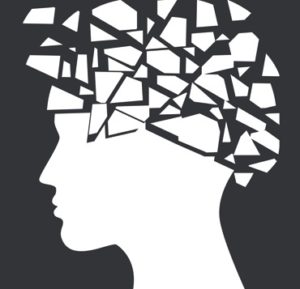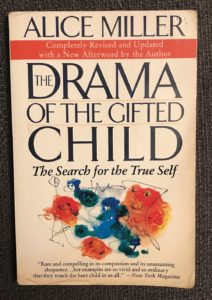 Crazy is not being in touch with reality.
Crazy is not being in touch with reality.
Being in touch with reality means seeing things clearly, without the veils or filters known as defenses.
We employ defenses (e.g., denial, projection, dissociation) when reality is too painful to see.
Reality is too painful to see because we have unresolved historical traumas due to the actual horror of the realities we have experienced.
Our defenses make life more palatable to us, yet they’re all manifestations of our craziness.
To that end, we’re all crazy to some degree, to the degree that we have defenses.
However, part of the craziness of society is to only label as crazy a certain tip of the iceberg of the defenses.
The easiest people to label crazy are not necessarily any crazier than the rest of us, but only have defenses different from the norm, especially defenses that are difficult for the norm to understand or relate to.
On a macro scale, this is why it’s easier for people to label other cultures as crazy while failing too see the craziness in their own.
All of this, individually and societally, is a defense in and of itself, known as splitting (i.e., idealizing one’s own group or self and devaluing the “Other”).
By labeling some people as crazy and labeling “us” as sane or normal we don’t have to face our defenses, and thus our defenses can stay unconscious, comfortable, and intact.
Also, many people labeled crazy can’t function as well in society.
This doesn’t mean they’re necessarily any crazier than anyone else, and sometimes they may even be objectively less crazy, that is, better able to see reality.
To that end, a hypothetically completely sane person who pointed out others’ conventional defenses could infuriate them and cause them to project their craziness onto him or her and label him or her crazy.
Essentially, if a person stocked full of psychological defenses is just able to fit in and function, others like him or her will not consider him or her crazy.
This allows all sorts of objectively crazy behavior and attitudes and ways of thinking to fly under the radar of conventional consciousness.
Also, part of healing psychological wounds and the defenses holding them in place means slowly facing reality more.
This can be extremely painful, and for a time, sometimes a long time, this can make it more difficult for a person to function in society.
So even though a person is healing their wounds, that is, becoming healthier, they can be considered more crazy.
Also, many supposedly sane people are actually just one step away from being labeled crazy.
A few shifts in defenses, a slightly lessened ability to hide their defensive patterns, or a shift to an environment where different defenses are considered acceptable can lead others to look at them as crazy.
 I have often been asked to recommend books –psychology and novels and others — which I like or have found helpful on my life journey. So I compiled a list, albeit an incomplete one, and a little explanation of why I found value in these books. Also, I just want to add that I don’t necessarily agree with the entire philosophy or attitude expressed in all of these books. Sometimes I strongly disagree with some of the things expressed — but still find the books valuable for various reasons. Meanwhile, if you feel so inspired, feel free to post your own book recommendations in the comment section below!
I have often been asked to recommend books –psychology and novels and others — which I like or have found helpful on my life journey. So I compiled a list, albeit an incomplete one, and a little explanation of why I found value in these books. Also, I just want to add that I don’t necessarily agree with the entire philosophy or attitude expressed in all of these books. Sometimes I strongly disagree with some of the things expressed — but still find the books valuable for various reasons. Meanwhile, if you feel so inspired, feel free to post your own book recommendations in the comment section below!
 Crazy is not being in touch with reality.
Crazy is not being in touch with reality. caused us, then we remain emotional children forever—and still retain the terror of being rejected by them. This can be a fear worse than death. As such, many people use unconscious mental techniques to avoid holding their abusive parents responsible. Here are seven of these techniques:
caused us, then we remain emotional children forever—and still retain the terror of being rejected by them. This can be a fear worse than death. As such, many people use unconscious mental techniques to avoid holding their abusive parents responsible. Here are seven of these techniques: “
“